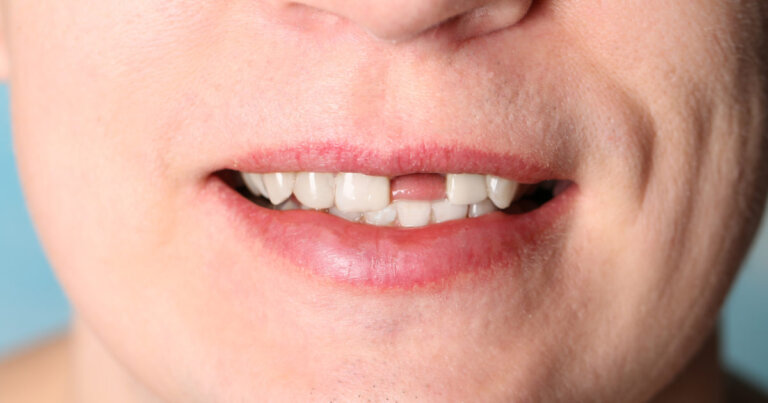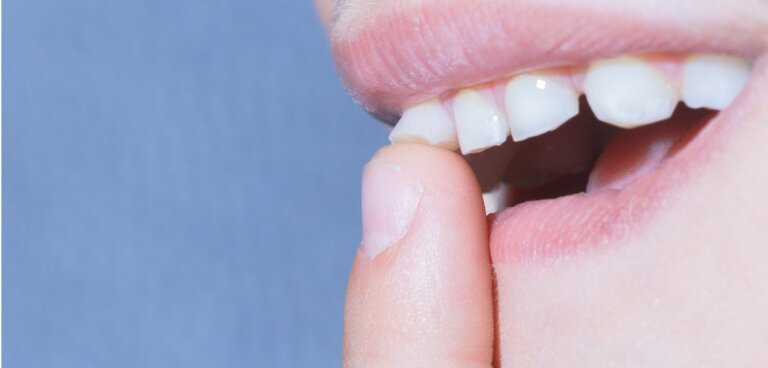Knocked Out Tooth First Aid

Knocked-Out Tooth First Aid: Essential Steps for Saving Your Tooth
A knocked-out tooth, also known as an avulsed tooth, is a dental emergency that can happen suddenly—whether from a sports injury, accident, or even a fall. Knowing what steps to take immediately can make all the difference in saving the tooth and ensuring the best possible outcome. Here’s a guide on what to do if you or someone you know loses a tooth.
- Why Quick Action is Essential for a Knocked-Out Tooth
- Treatment for a Knocked-Out Tooth at the Dentist
- What If the Knocked-Out Tooth Cannot Be Saved?
- Frequently Asked Questions About Knocked Out Teeth
If you have any further questions about a Knocked-Out tooth or other dental services offered at Atlas Dental, please contact us.
Why Quick Action is Essential for a Knocked-Out Tooth
When a tooth gets knocked out, the blood vessels, nerves, and tissues around the tooth are damaged, making it crucial to act fast. The sooner you receive dental treatment, the better the chances of successfully reimplanting the tooth. Ideally, a knocked-out tooth should be reinserted by a dentist within 30 minutes to 1 hour for the highest likelihood of recovery.
First Aid Steps for a Knocked-Out Adult Teeth
In cases of knocked out adult teeth accidents, this is what you must do:
- Stay Calm and Act Fast:
Reacting quickly can make all the difference. Follow the steps below to give the tooth the best chance of survival. - Locate the Tooth and Avoid Touching the Root
If you find the tooth, hold it by the crown (the visible part of the tooth). Avoid touching the root to prevent damaging the cells necessary for reattachment. - Rinse the Tooth Gently
If the tooth is dirty, rinse it with room-temperature water. Do not scrub it or use soap, mouthwash, or antiseptic, as this can harm the cells needed for reattachment. - Reinsert the Tooth (If It’s an Adult Tooth)
Gently try to reinsert the tooth into its socket if it’s an adult tooth. Make sure it’s facing the right way, and hold it in place with a finger or by biting down on a clean piece of gauze or cloth. - Keep the Tooth Moist
If reinsertion isn’t possible, keep the tooth moist. Store it in cold milk or in the patient’s saliva. Avoid tap water or other liquids, as they can harm the tooth’s root cells. - Seek Emergency Dental Care Immediately
See a dentist or endodontist as soon as possible. The sooner you get to a professional, the higher the chances of successful reimplantation.
Do Not Reimplant Baby Teeth
Do not attempt to reinsert a knocked-out baby tooth, as doing so can damage the developing adult tooth underneath. Instead, control the bleeding and seek immediate dental care to ensure there are no other complications.

Treatment for a Knocked-Out Tooth at the Dentist
Once you arrive at the dental office, your dentist will take steps to preserve the tooth and check for any additional damage to surrounding teeth and gums. Here’s what you can expect:
- Reimplantation: If you haven’t reinserted the tooth yourself, the dentist will clean the tooth and attempt to place it back into the socket.
- Splinting the Tooth: The dentist may attach the tooth to the surrounding teeth using a splint, which helps hold it in place while it heals.
- Monitoring and Follow-Up Care: Your dentist will monitor the tooth over several weeks to ensure it’s healing properly and that there are no signs of infection or damage to the surrounding teeth and bone. Root canal treatment may be required.
What If the Knocked-Out Tooth Cannot Be Saved?
Unfortunately, not all knocked-out teeth can be successfully reimplanted. In these cases, your dentist will discuss replacement options, which may include:
- Dental Implants: A durable, permanent solution that replaces the tooth root with a titanium post, topped with a custom crown.
- Dental Bridge: A bridge fills the gap left by the missing tooth by anchoring a replacement tooth to adjacent teeth.
- Partial Denture: A removable option that can fill the space created by the lost tooth, especially if multiple teeth were affected.
If you have any further questions about your treatment options from an avulsed tooth or other dental services offered at Atlas Dental, please contact us.
Frequently Asked Questions About Knocked Out Teeth
- Can a knocked-out tooth be reimplanted after an hour?
Yes, but the chances of successful reimplantation decrease significantly after one hour. Quick action is always recommended.
- What should I avoid doing with a knocked-out tooth?
Avoid touching the root, scrubbing the tooth, and putting it in water, as these actions can reduce the likelihood of reimplantation.
- How can I save my knocked-out tooth until I get to the dentist?
Place the tooth in a container with milk or a tooth-preserving solution to keep it moist and protect the root cells.
- What should I do if I don’t have milk to store the tooth?
If milk isn’t available, keep the tooth moist in your saliva by placing it between your cheek and gums. Avoid storing it in water, as this can damage the root.
A knocked-out tooth is a dental emergency that requires immediate attention to maximize the chances of saving it. If you or someone you know experiences this, follow the recommended steps and contact us at Atlas Dental for expert care and guidance.

